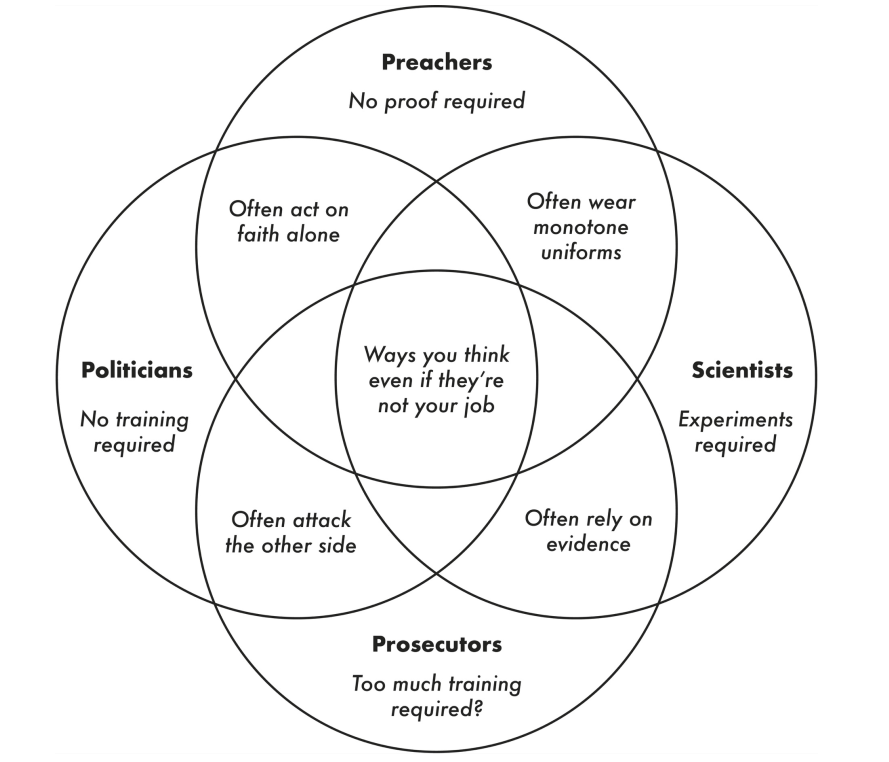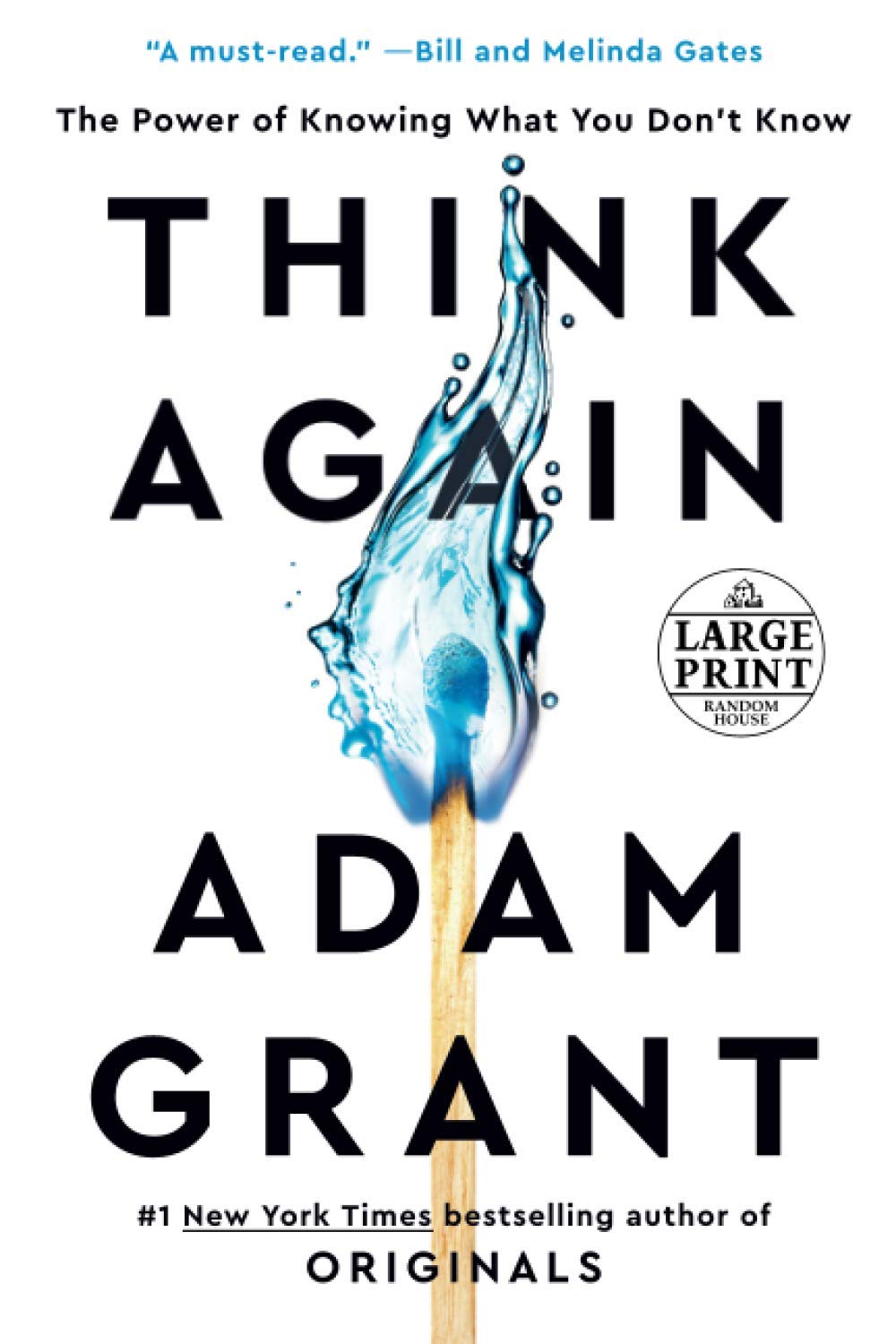Different Mindsets of Thinking
A Preacher, a Prosecutor, a Politician, and a Scientist Walk into Your Mind
I recently read Think Again by Adam Grant. In the book, he mentions that at different times we slip into different modes of thinking. Here is the excerpt from the book:
Two decades ago my colleague Phil Tetlock discovered something peculiar. As we think and talk, we often slip into the mindsets of three different professions: preachers, prosecutors, and politicians. In each of these modes, we take on a particular identity and use a distinct set of tools. We go into preacher mode when our sacred beliefs are in jeopardy: we deliver sermons to protect and promote our ideals. We enter prosecutor mode when we recognize flaws in other people’s reasoning: we marshal arguments to prove them wrong and win our case. We shift into politician mode when we’re seeking to win over an audience: we campaign and lobby for the approval of our constituents. The risk is that we become so wrapped up in preaching that we’re right, prosecuting others who are wrong, and politicking for support that we don’t bother to rethink our own views.
A DIFFERENT PAIR OF GOGGLES
If you’re a scientist by trade, rethinking is fundamental to your profession. You’re paid to be constantly aware of the limits of your understanding. You’re expected to doubt what you know, be curious about what you don’t know, and update your views based on new data. In the past century alone, the application of scientific principles has led to dramatic progress. Biological scientists discovered penicillin. Rocket scientists sent us to the moon. Computer scientists built the internet.
But being a scientist is not just a profession. It’s a frame of mind—a mode of thinking that differs from preaching, prosecuting, and politicking. We move into scientist mode when we’re searching for the truth: we run experiments to test hypotheses and discover knowledge. Scientific tools aren’t reserved for people with white coats and beakers, and using them doesn’t require toiling away for years with a microscope and a petri dish. Hypotheses have as much of a place in our lives as they do in the lab. Experiments can inform our daily decisions. That makes me wonder: is it possible to train people in other fields to think more like scientists, and if so, do they end up making smarter choices?
Recently, a quartet of European researchers decided to find out. They ran a bold experiment with more than a hundred founders of Italian startups in technology, retail, furniture, food, health care, leisure, and machinery. Most of the founders’ businesses had yet to bring in any revenue, making it an ideal setting to investigate how teaching scientific thinking would influence the bottom line.
The entrepreneurs arrived in Milan for a training program in entrepreneurship. Over the course of four months, they learned to create a business strategy, interview customers, build a minimum viable product, and then refine a prototype. What they didn’t know was that they’d been randomly assigned to either a “scientific thinking” group or a control group. The training for both groups was identical, except that one was encouraged to view startups through a scientist’s goggles. From that perspective, their strategy is a theory, customer interviews help to develop hypotheses, and their minimum viable product and prototype are experiments to test those hypotheses. Their task is to rigorously measure the results and make decisions based on whether their hypotheses are supported or refuted.
Over the following year, the startups in the control group averaged under $300 in revenue. The startups in the scientific thinking group averaged over $12,000 in revenue. They brought in revenue more than twice as fast—and attracted customers sooner, too. Why? The entrepreneurs in the control group tended to stay wedded to their original strategies and products. It was too easy to preach the virtues of their past decisions, prosecute the vices of alternative options, and politick by catering to advisers who favored the existing direction. The entrepreneurs who had been taught to think like scientists, in contrast, pivoted more than twice as often. When their hypotheses weren’t supported, they knew it was time to rethink their business models.

